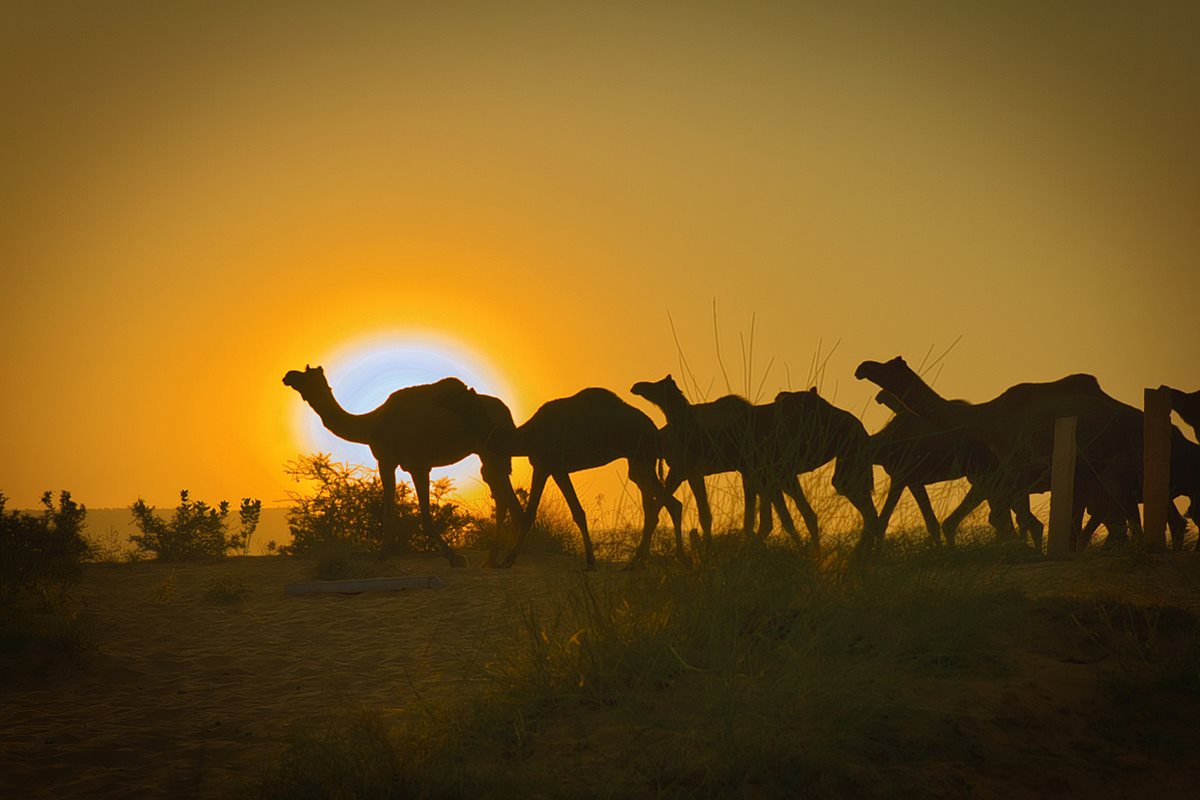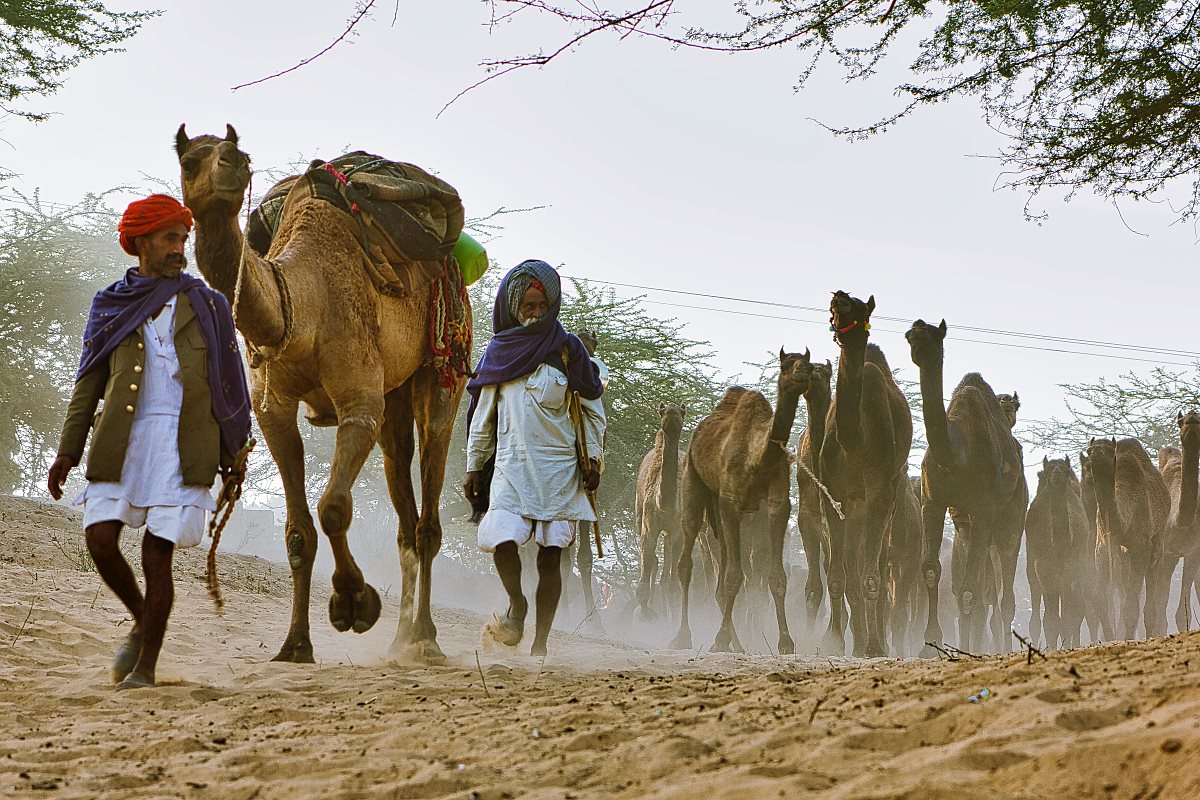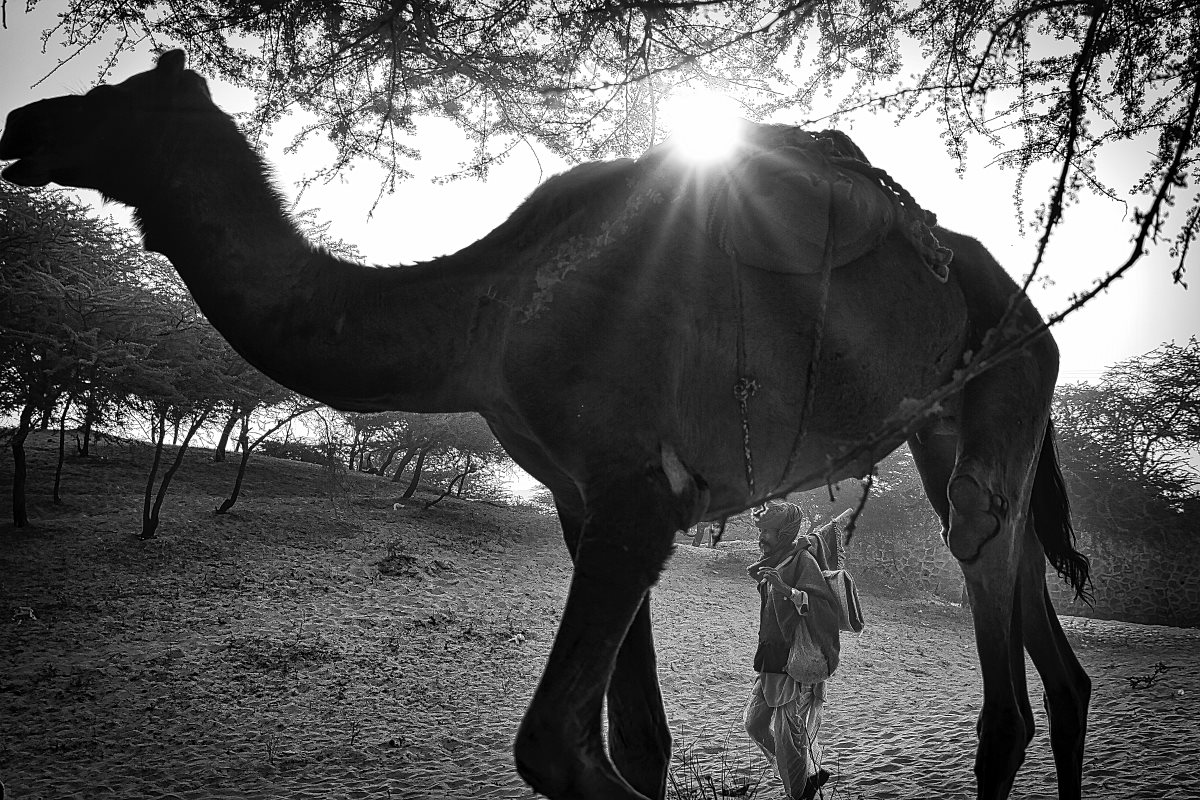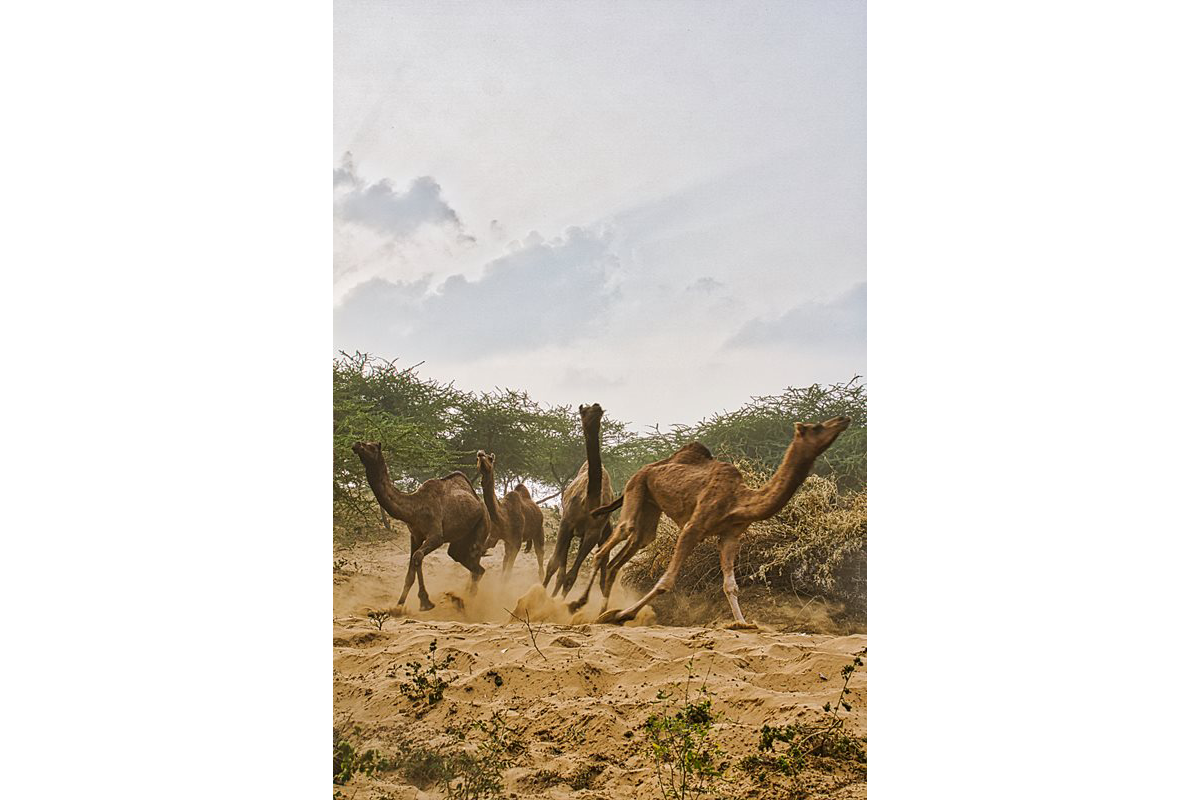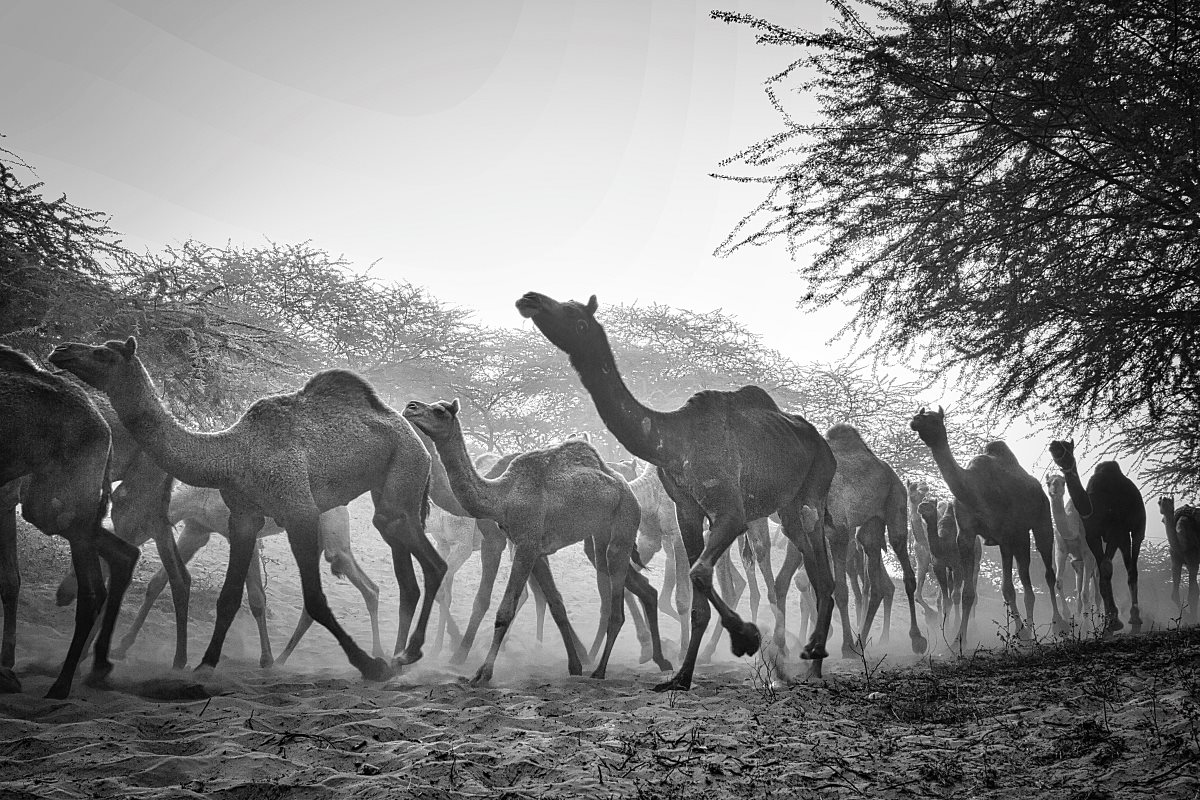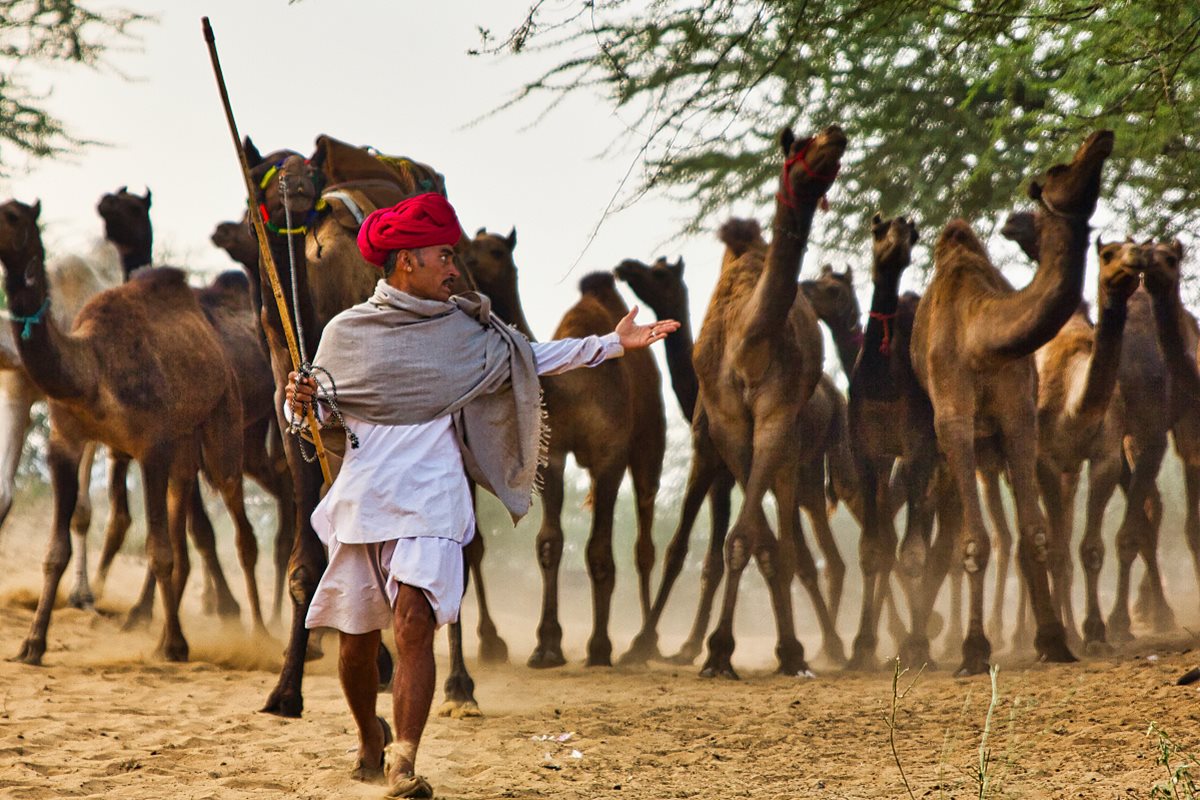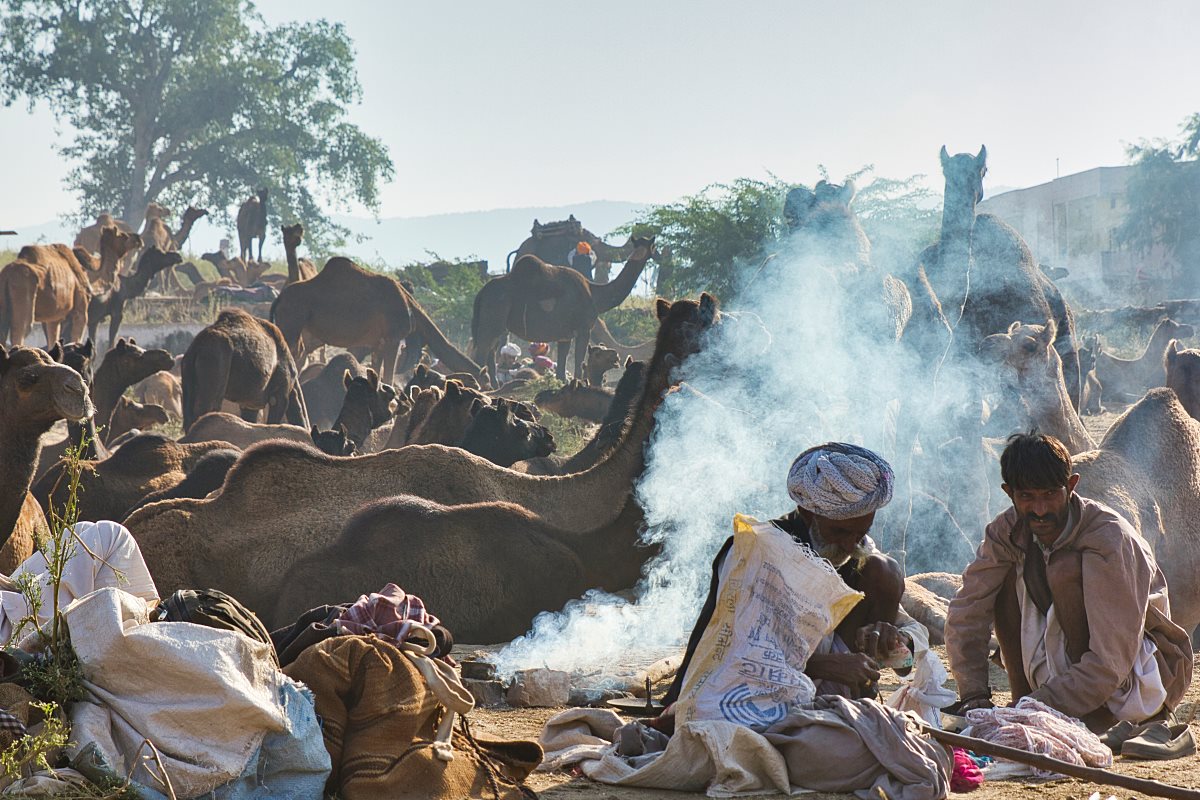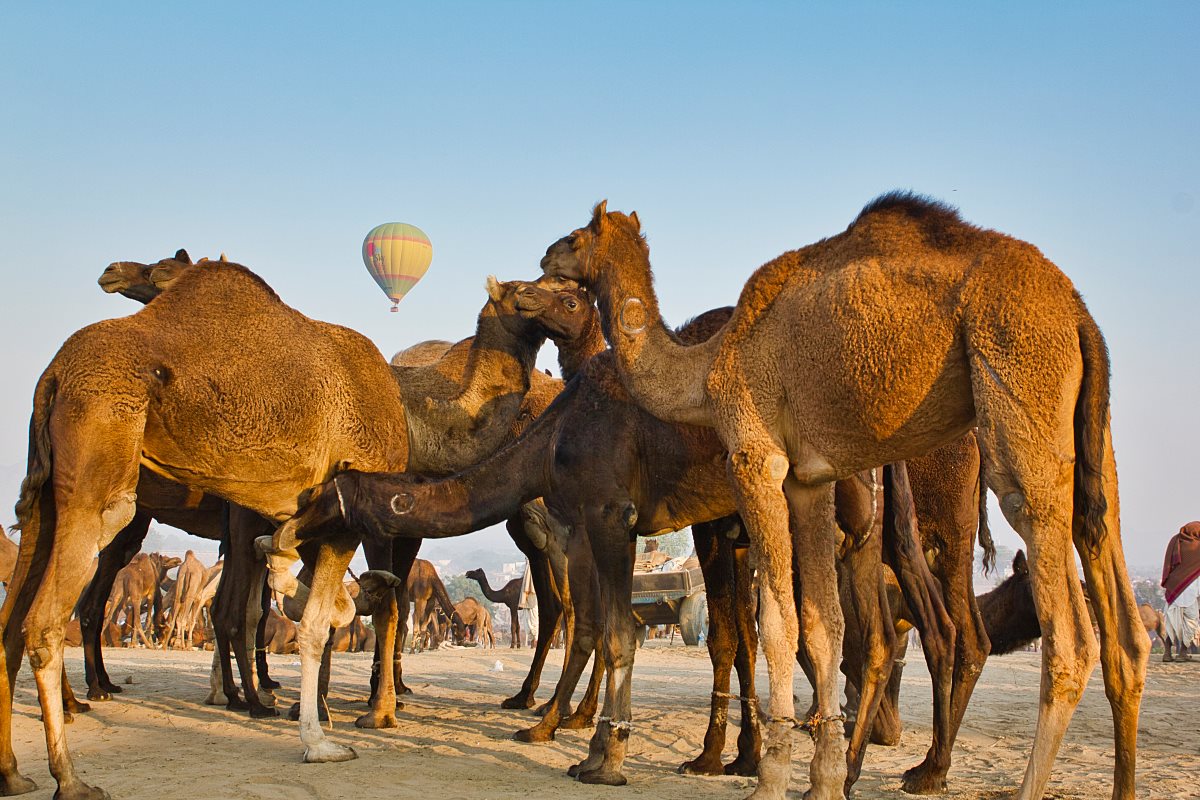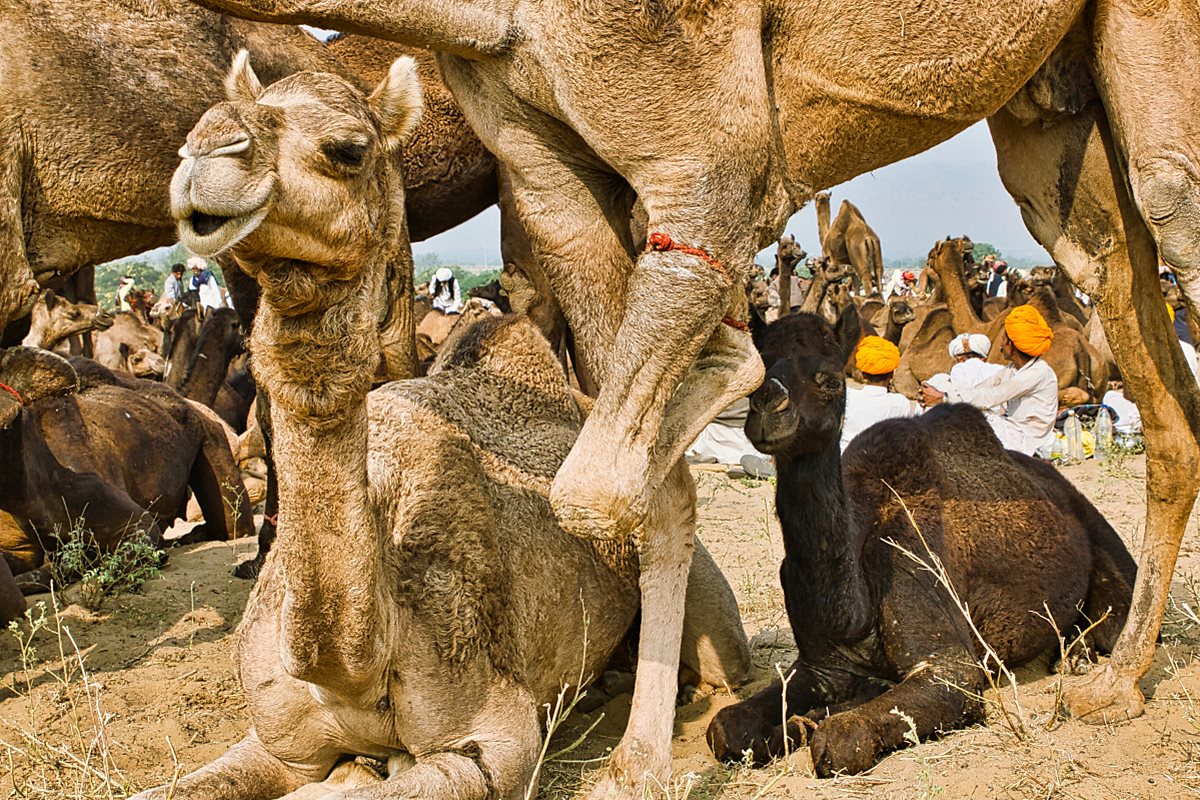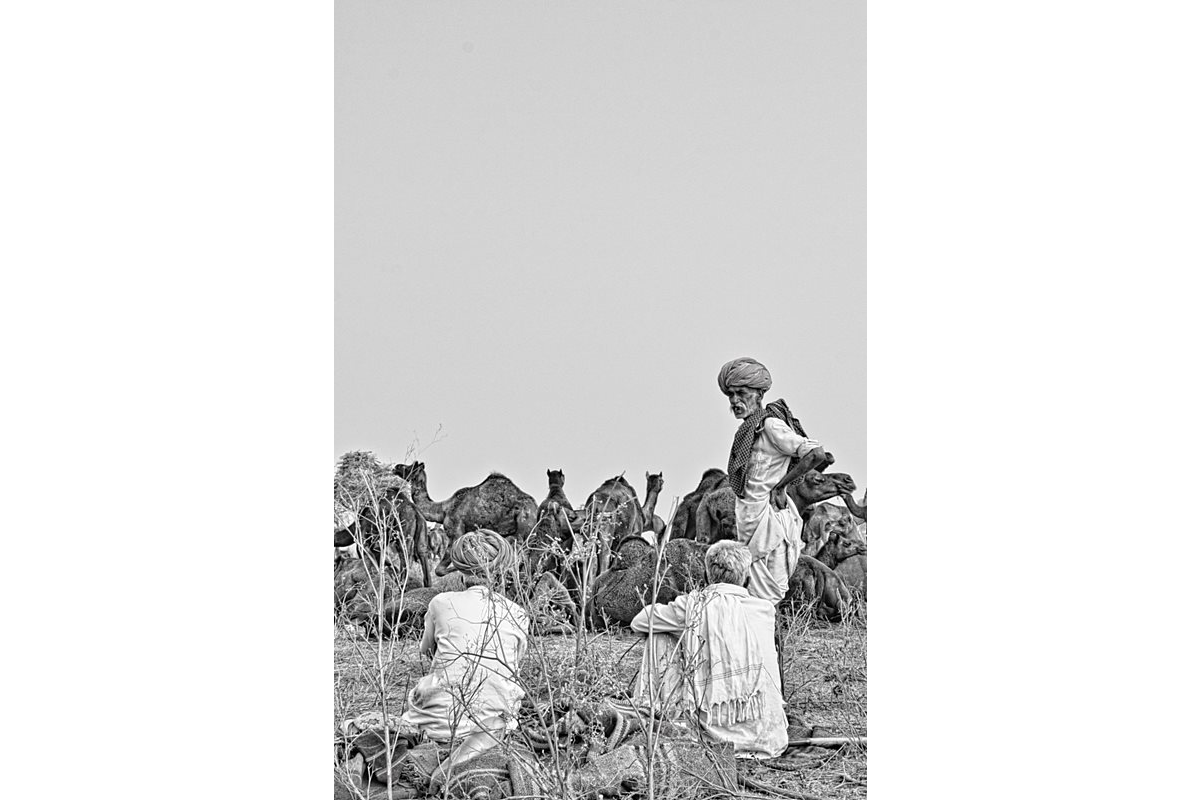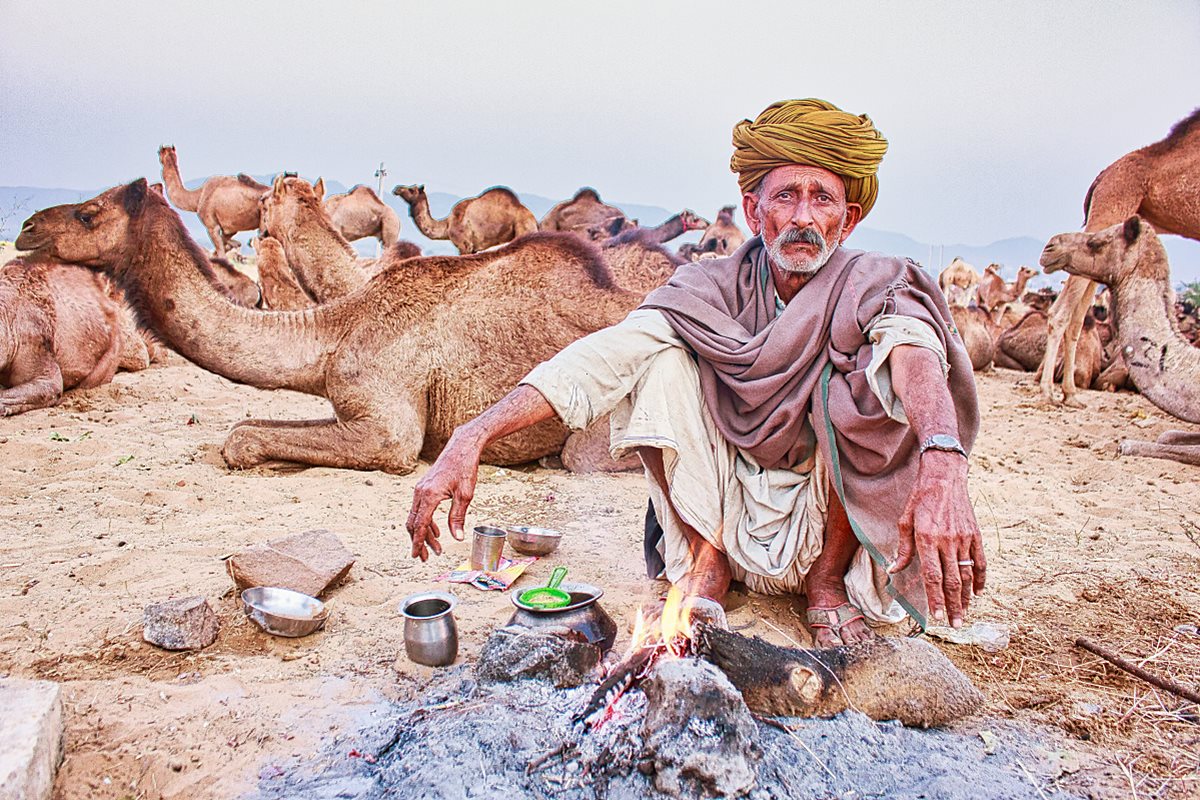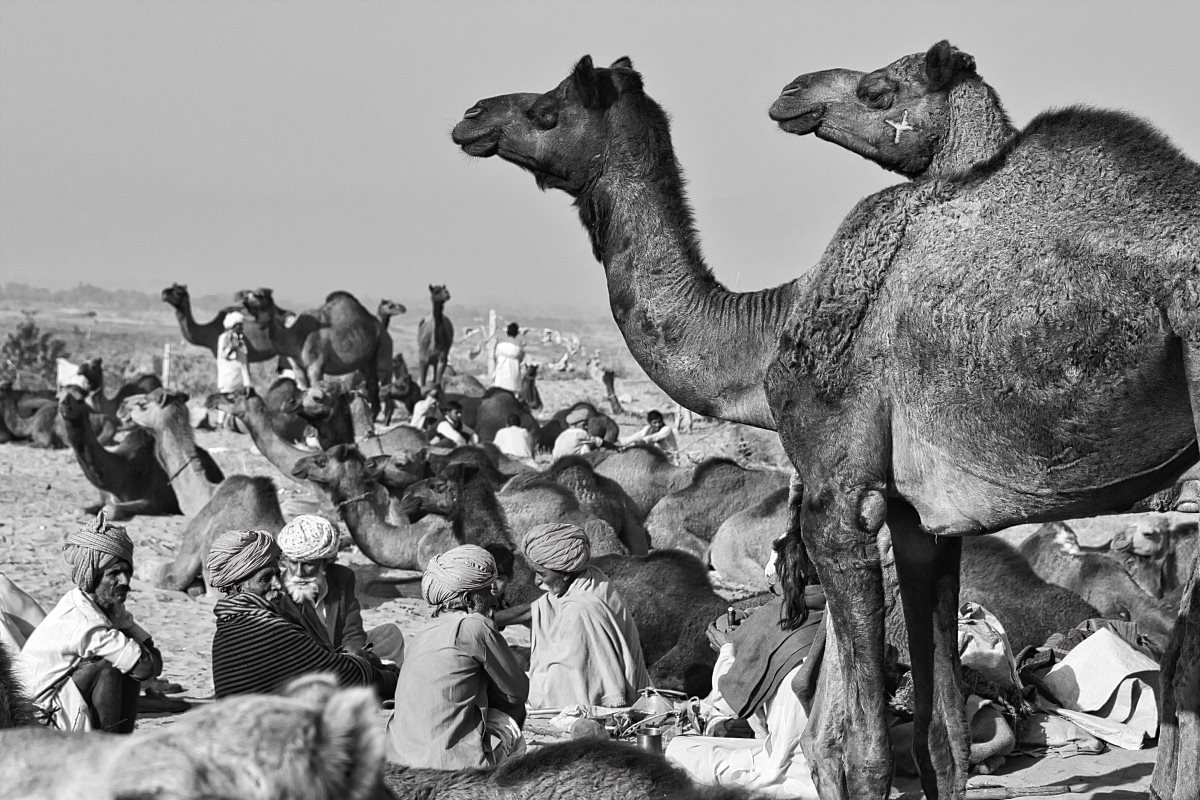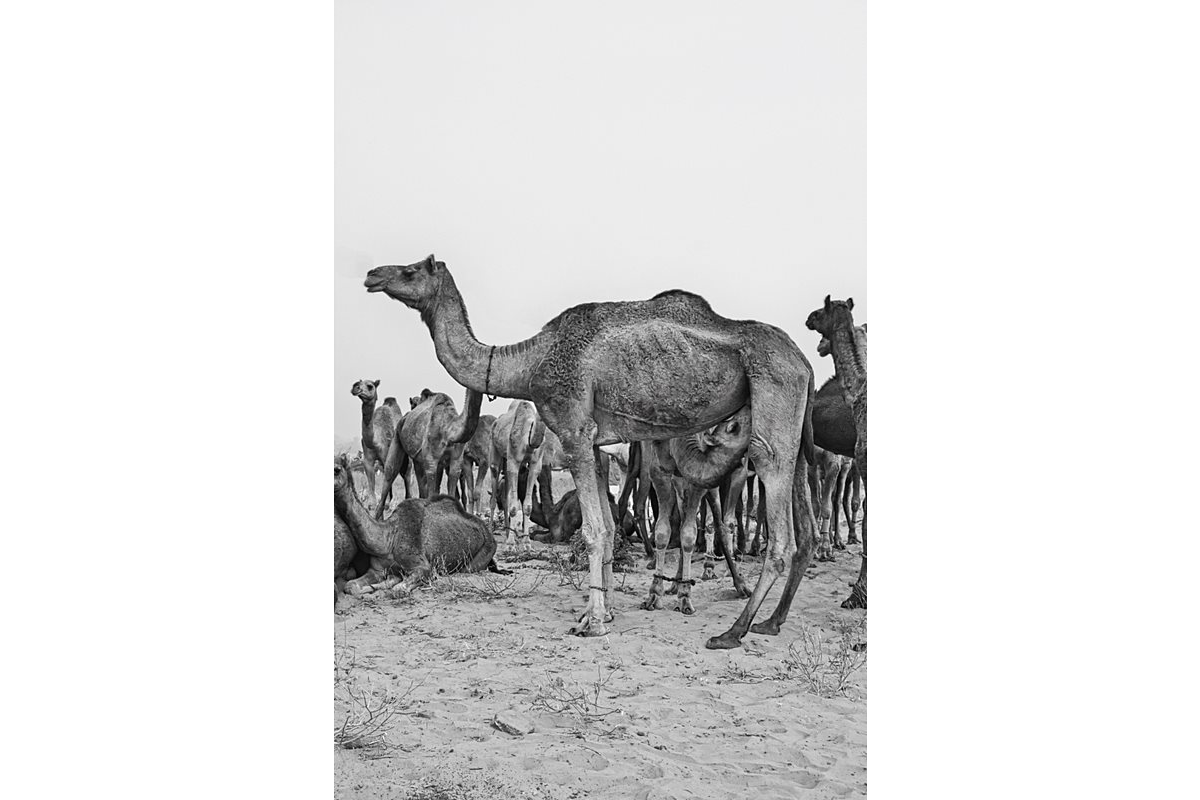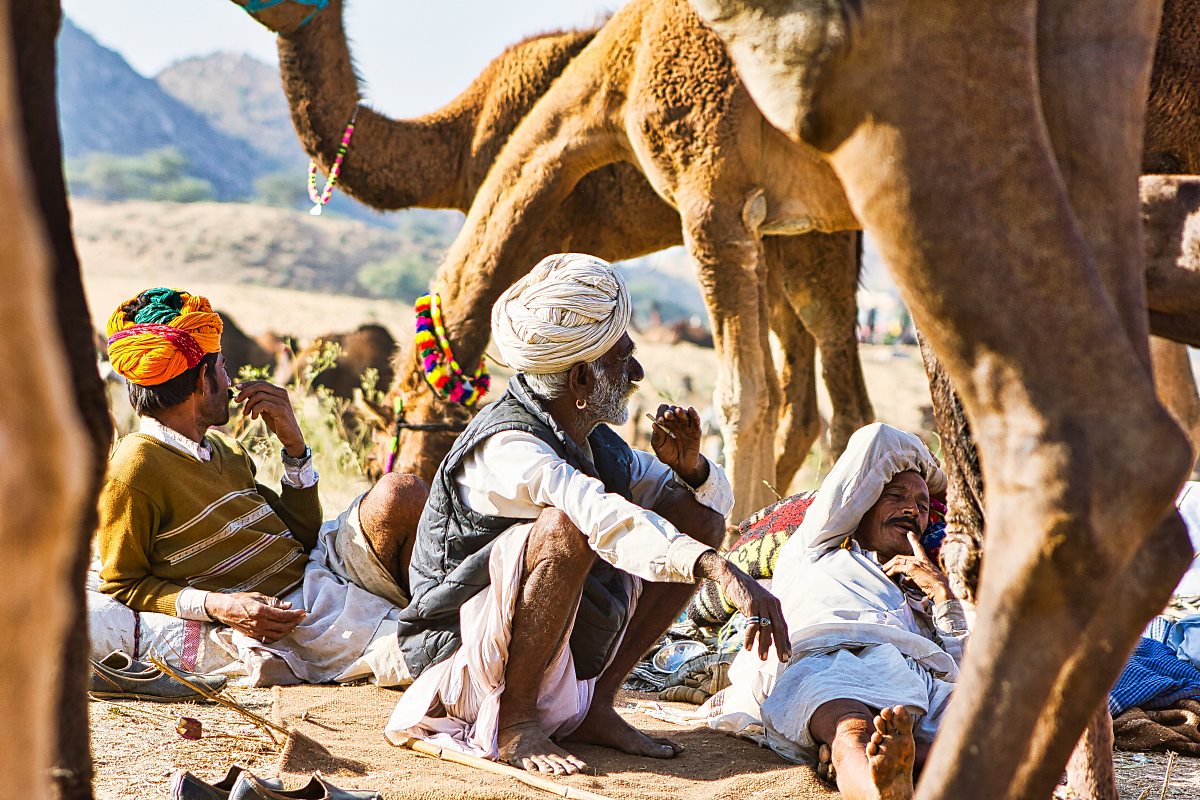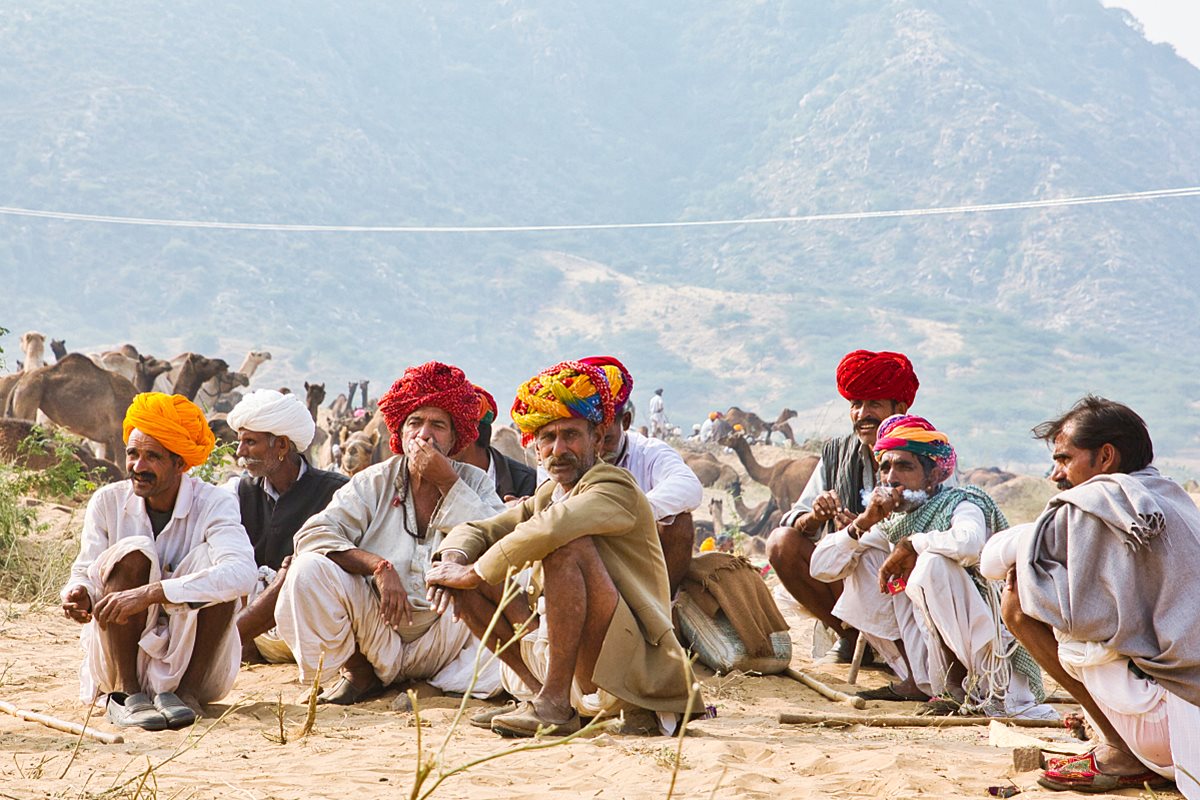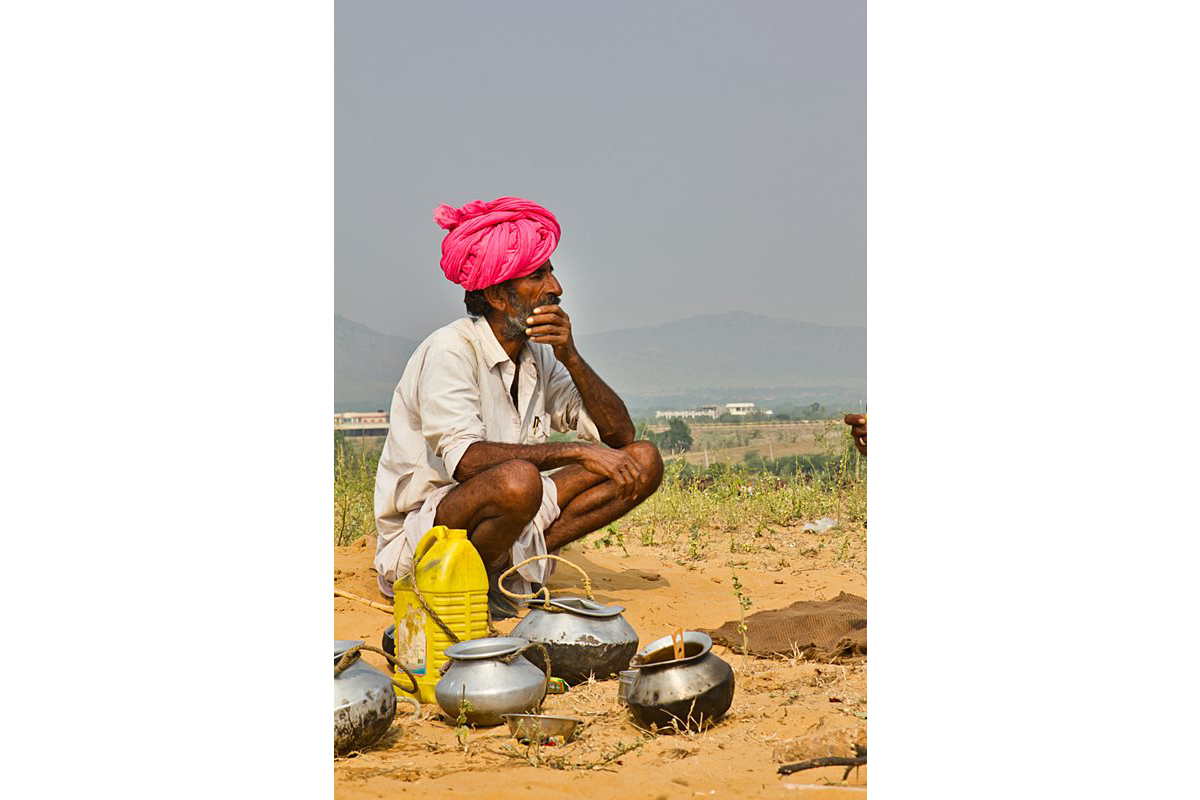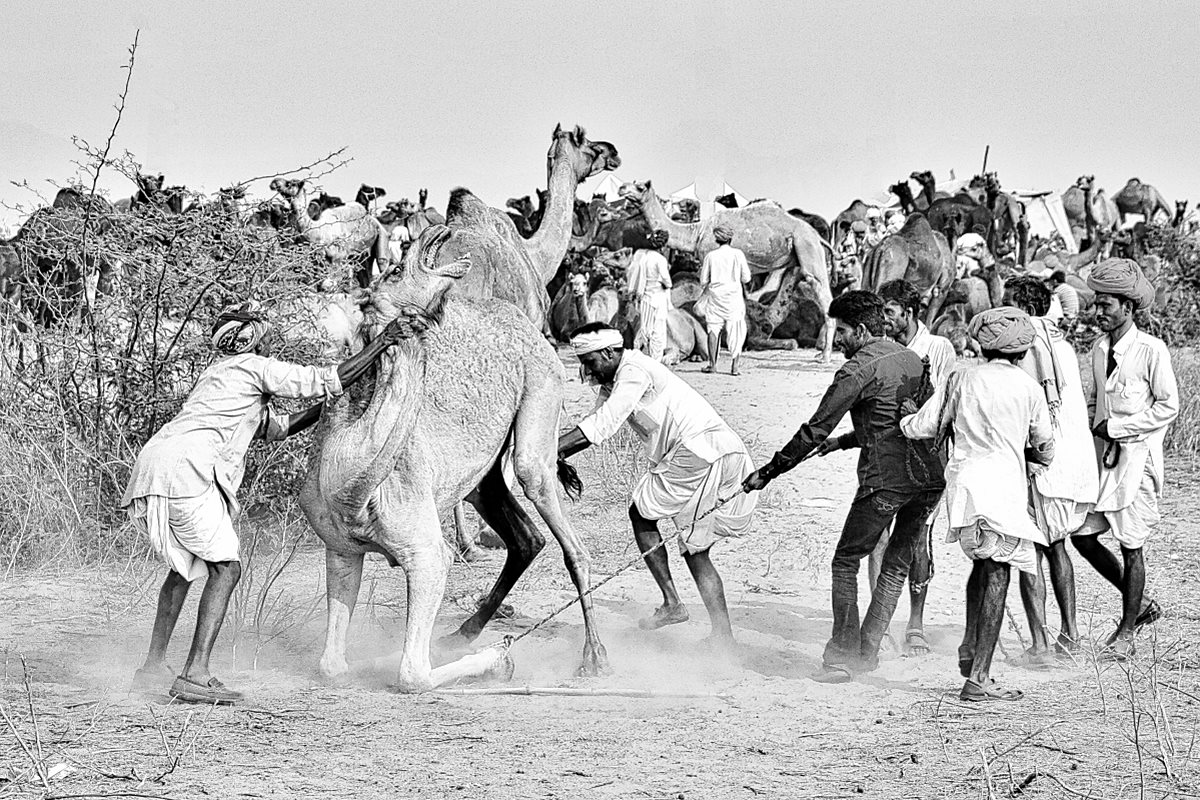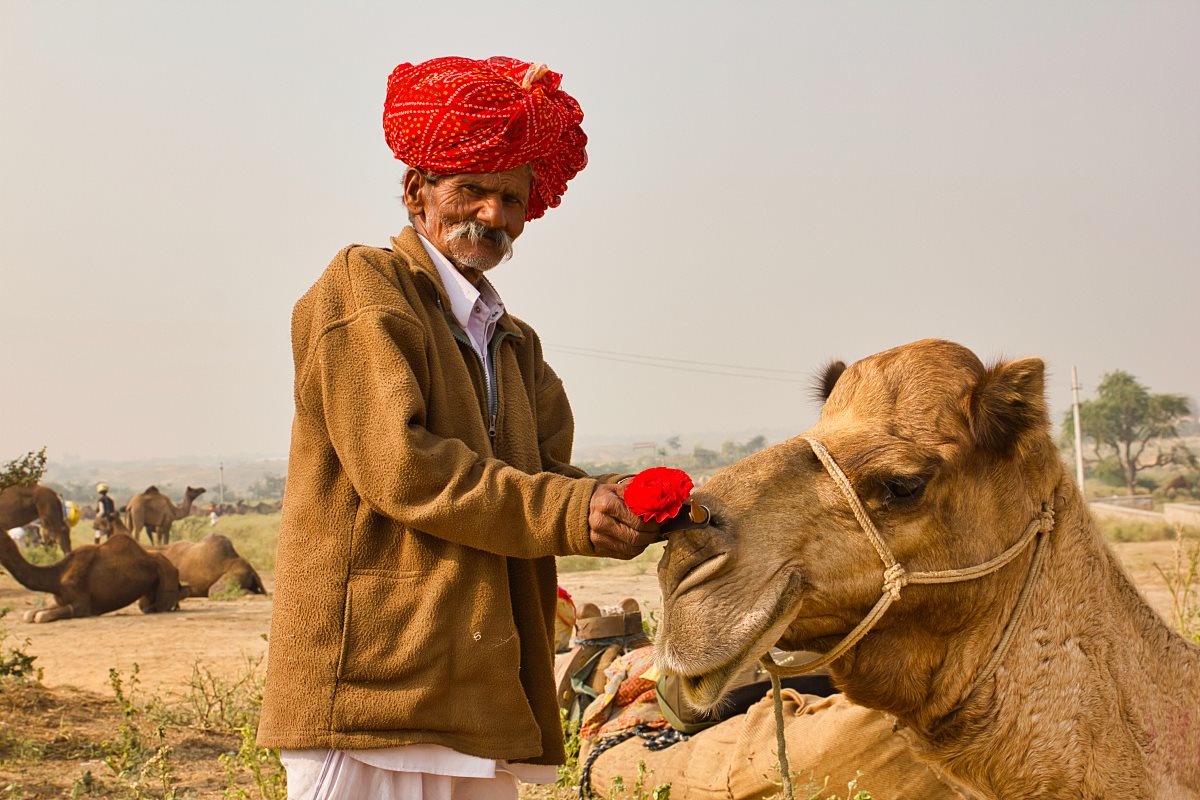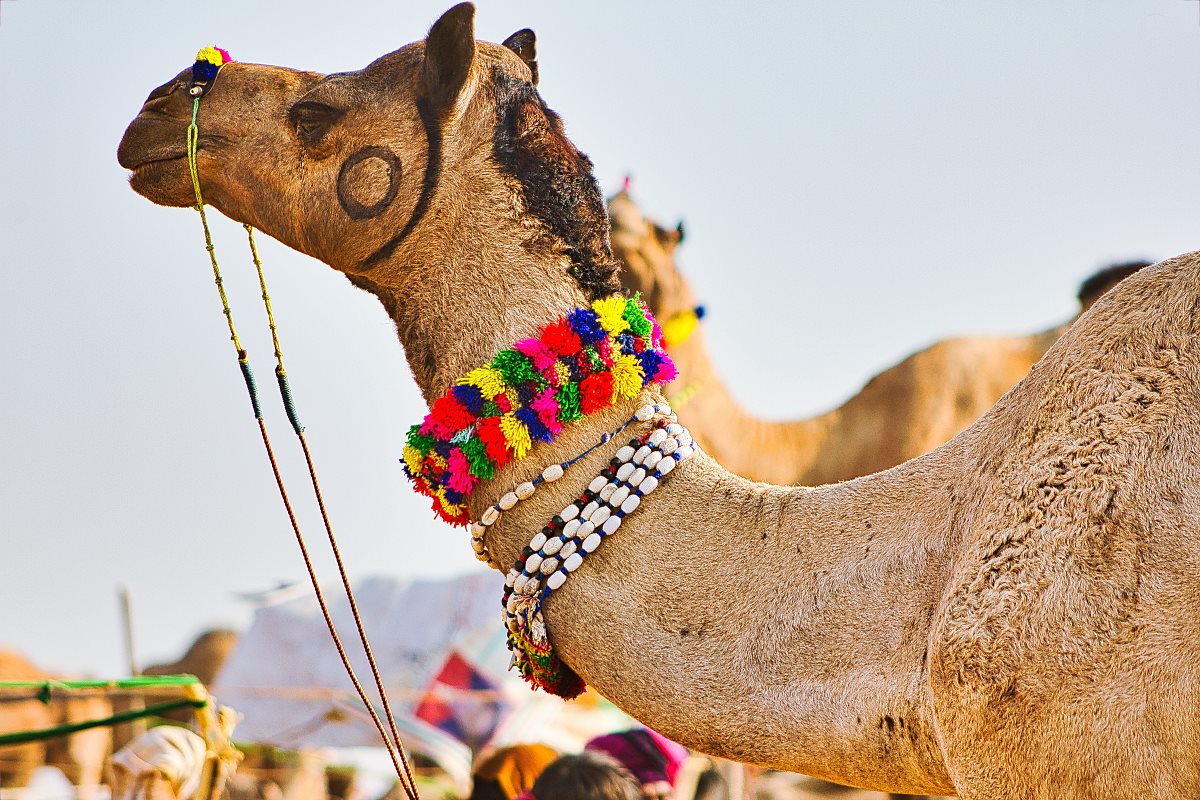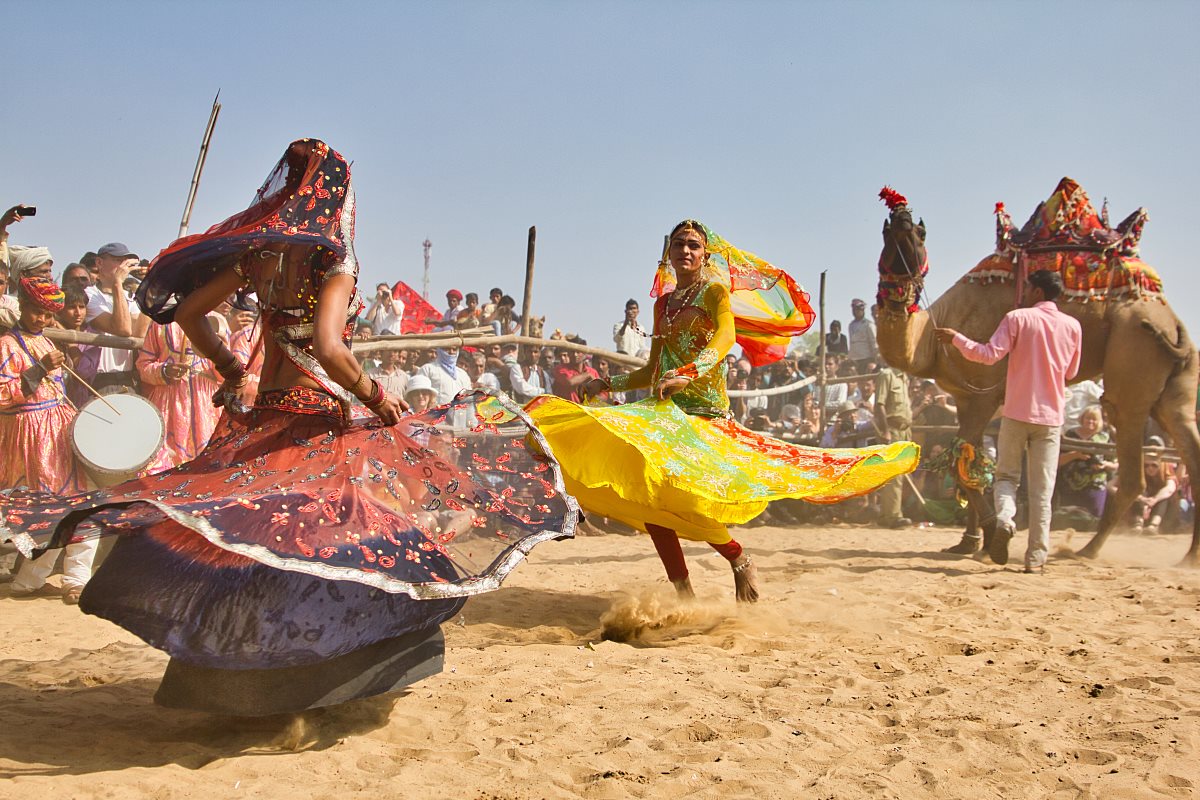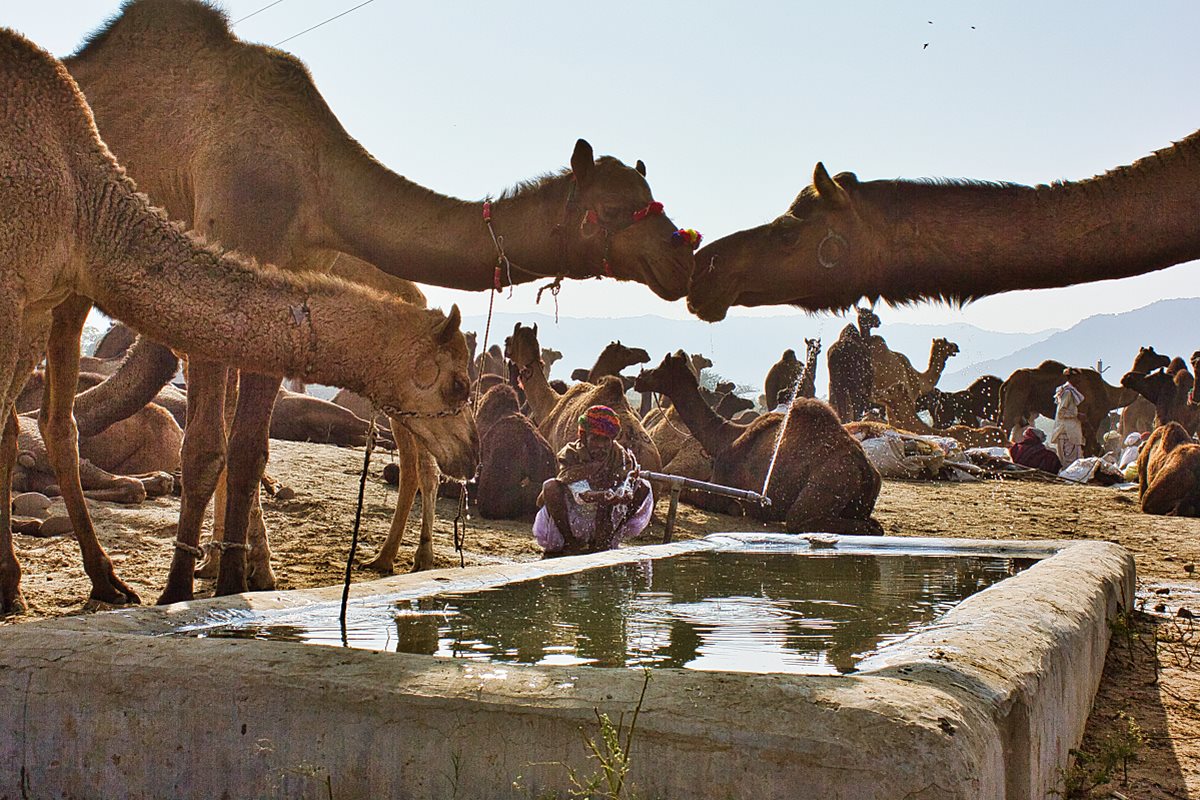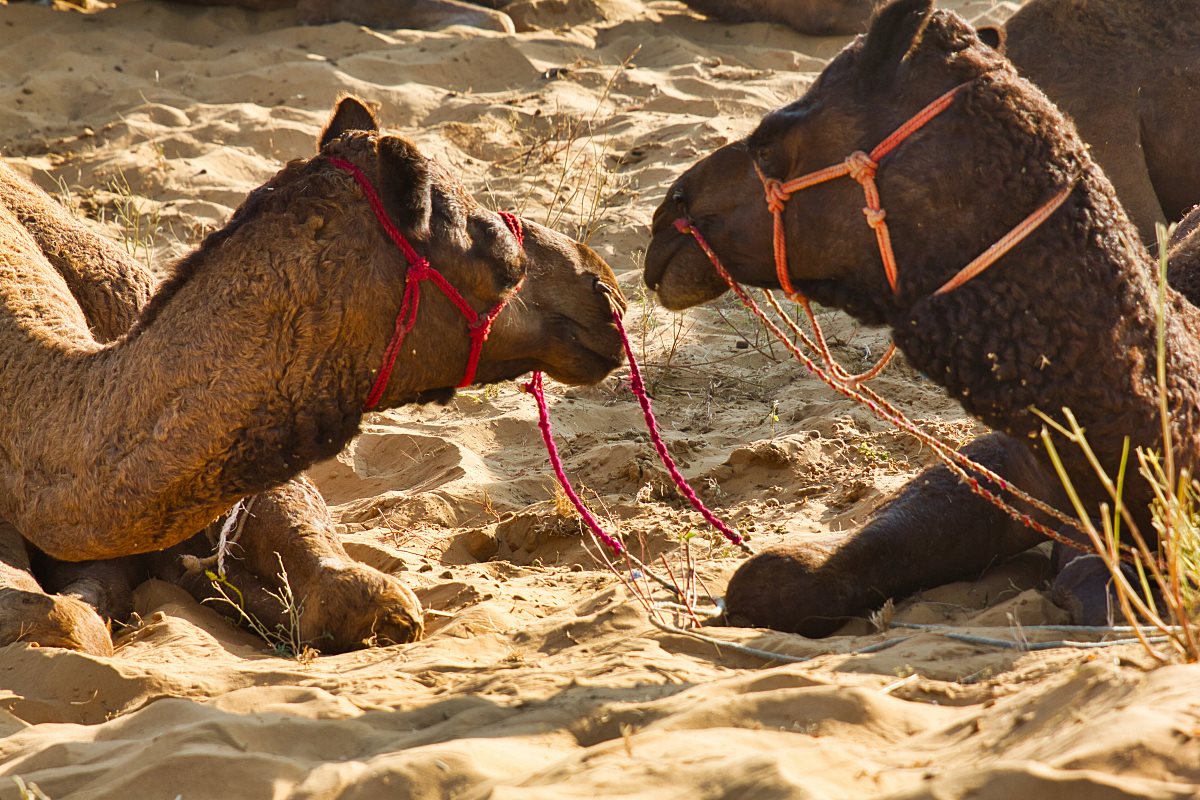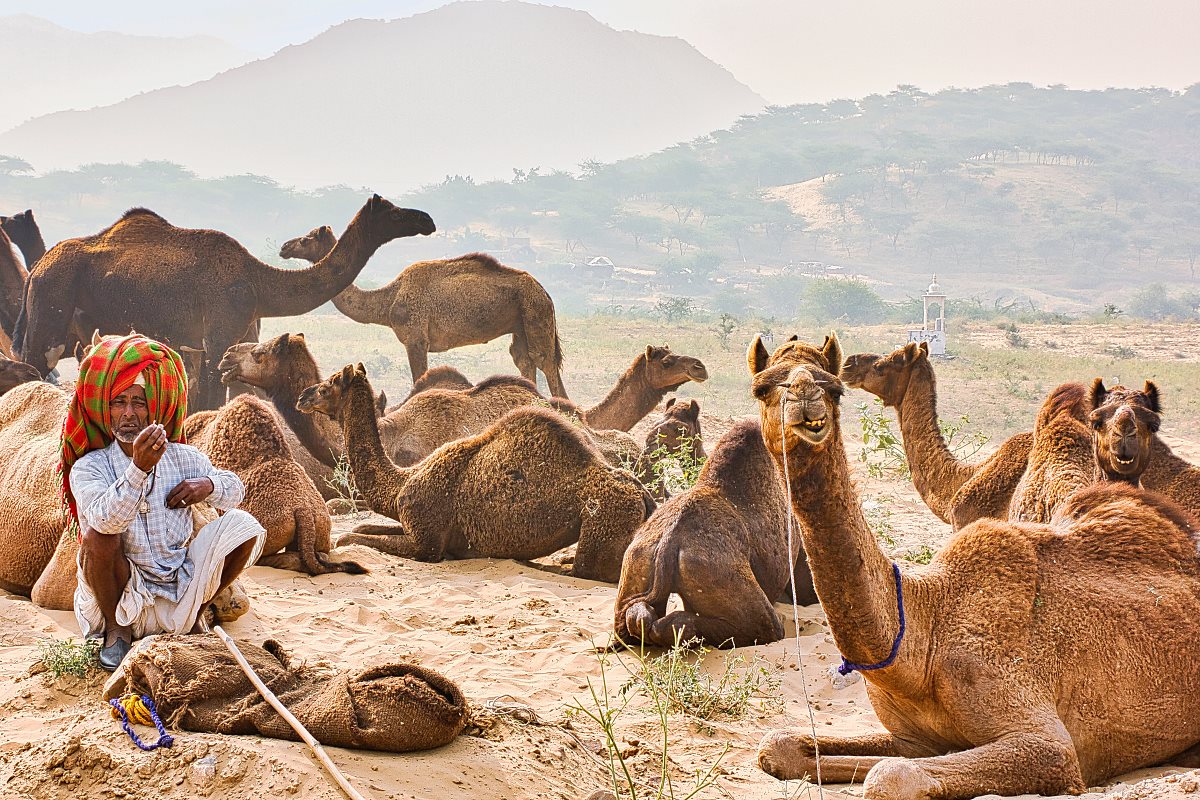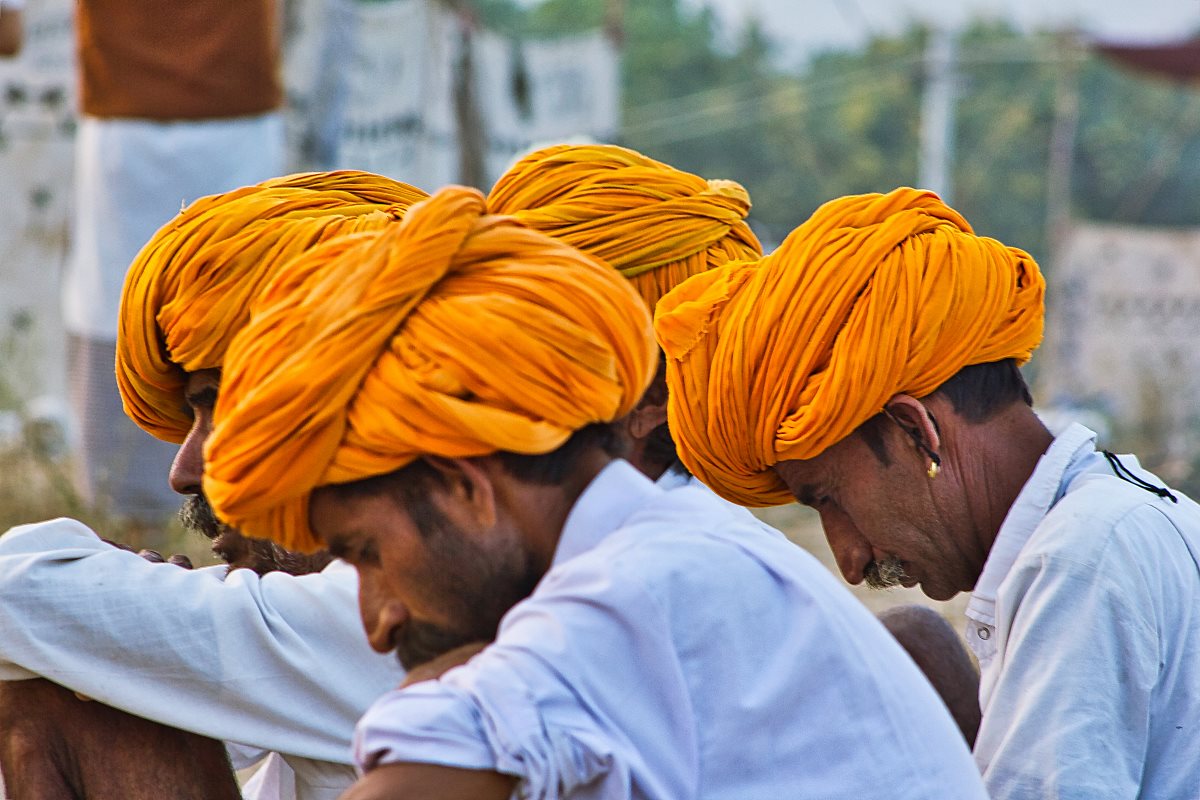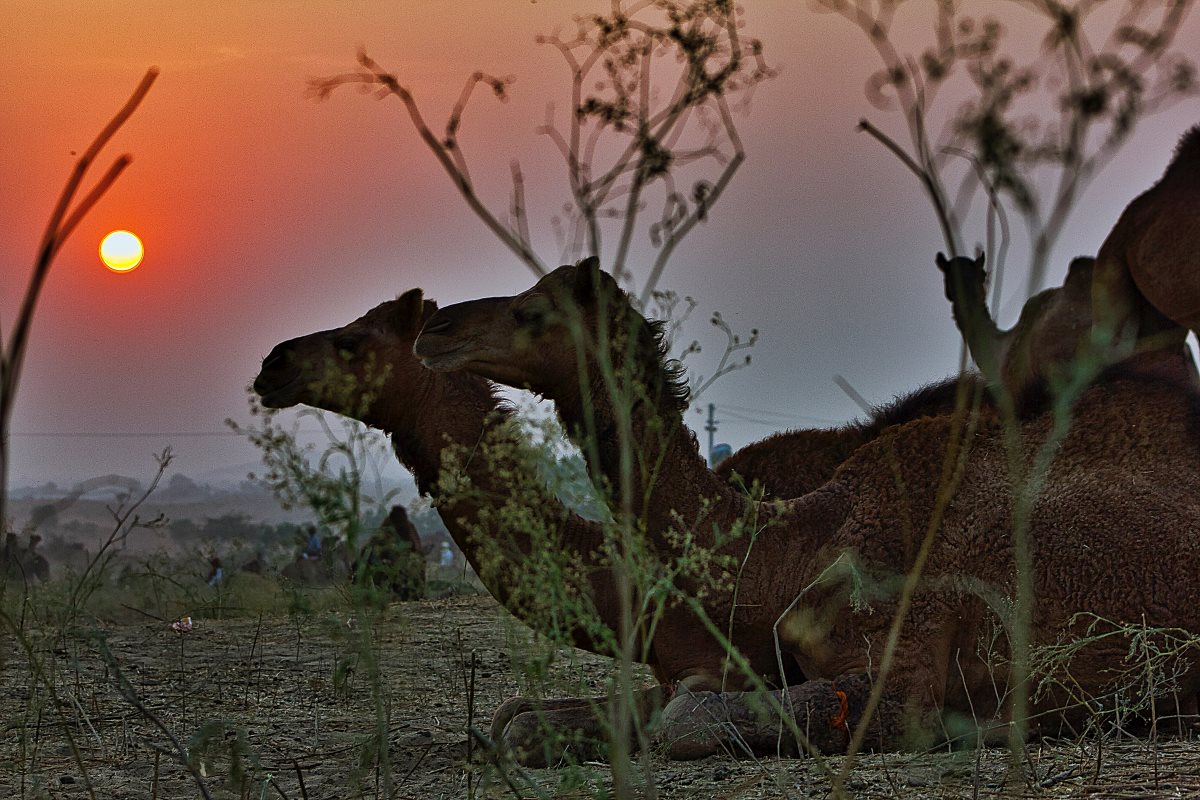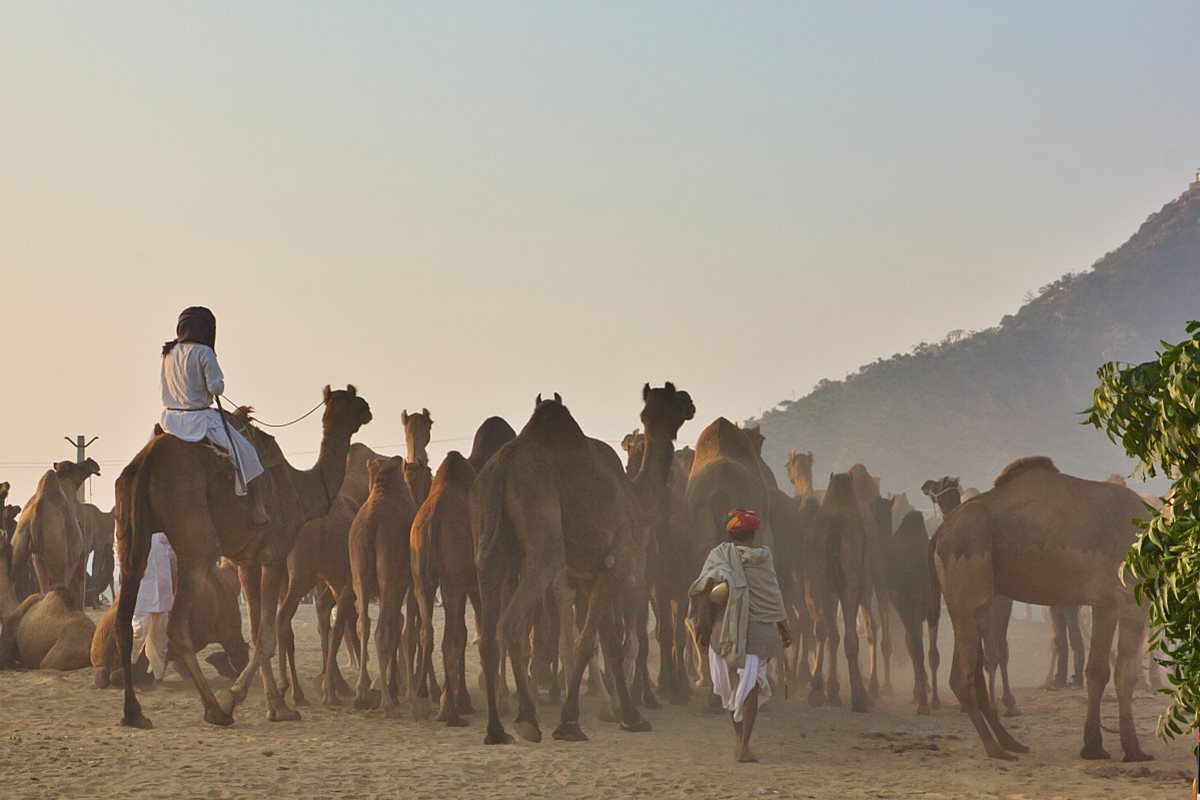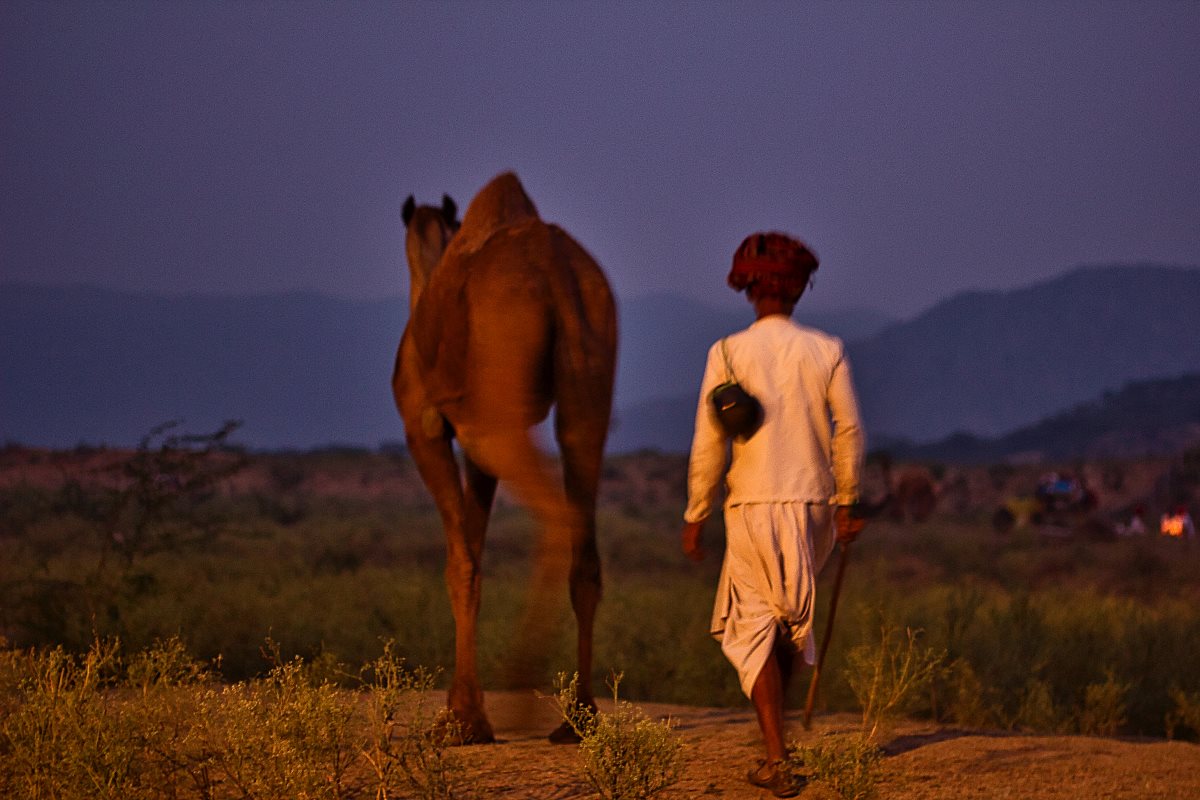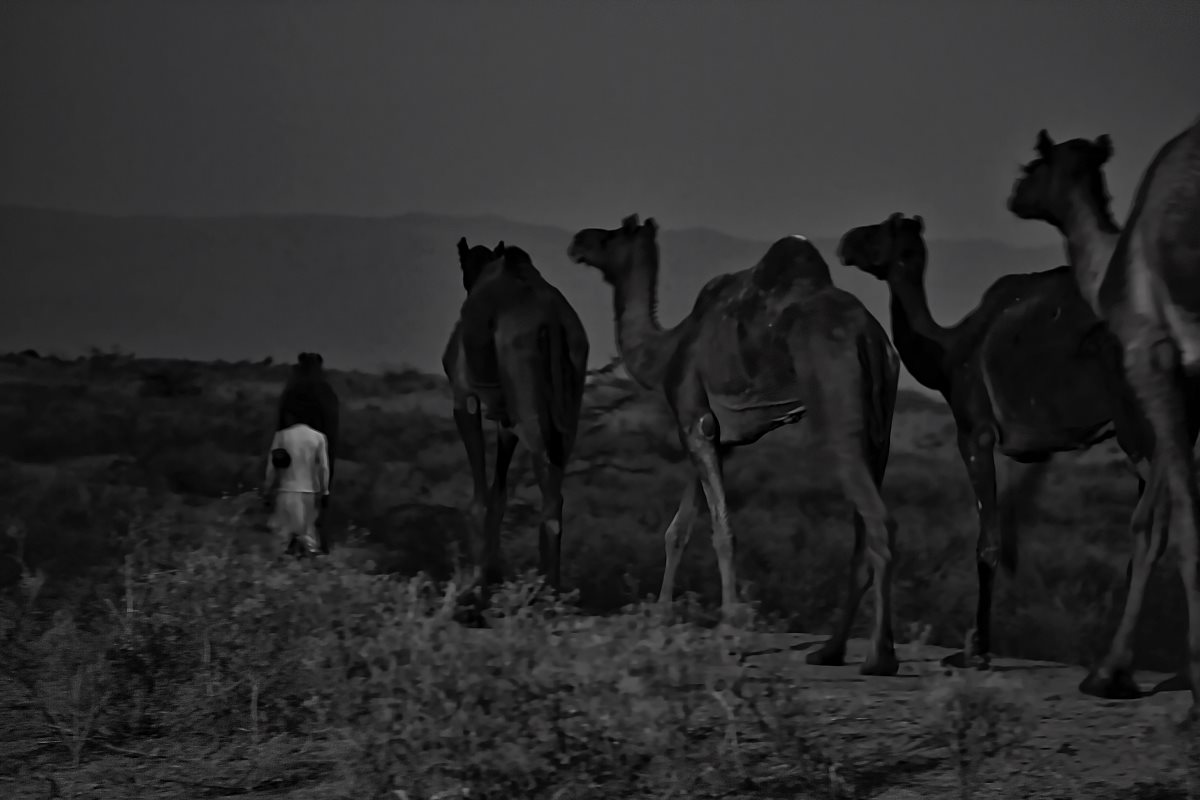Known for their devotion to mythology, history and ancestral heritage, which are intimately weaved with their traditional occupation of animal keeping, the Rabaris are an indigenous tribal caste of nomadic cattle and camel herders that live throughout northwest India, primarily in the states of Rajasthan and Gujarat.
The word Rabari means ‘outsiders’, which aptly narrates their primary occupation and their status within Indian society.
Tradition traces their origins to the Himalayas and it is believed that the first "Rabari" man was created by the deity Shiva to take care of the camel created by his wife, Parvati. Keeping animals is, therefore, a sacred occupation by the Rabaris who see themselves as their herds’ custodians rather than their owners.
The Rabaris form a very close-knit community, which in recent decades has begun to show signs of adapting to modern times. For pasturing their cattle, they wander from one place to another for half a year, chasing seasonal rains. Today, only a small percentage of Rabarisare truly nomadic, while others have started living in villages, located far away from cities and towns.
One of the most integral traditions of the Rabarisis the camel trade that takes place at the Pushkar Fair, annual multi-day livestock and cultural event takes place in the town of Pushkar, Rajasthan.
Every year at the time of the Kartik Purnima in November, the sleepy Indian town of Pushkar comes roaring to life as the Pushkar Camel Fair rolls into town, as it has done for decades.
Celebrated as the largest camel fair in the world, it attracts an estimated 200,000 visitors each year – an eclectic mix of Hindu pilgrims, livestock traders and wide-eyed tourists and photographers creating a carnival-like atmosphere where religion, tourism and commerce come together, yielding an enchanting and chaotic scene on the border of Rajasthan’s Thar Desert. For the Rabari people in Rajasthan, camel trading is a way of life. Attending the Pushkar Camel Fair offers a window into this unique desert culture. Livestock of various breeds are brought to the fair, known for its trade of camels, sheep, cows and goats. The Rabarisspend months making their camels look attractive by grooming them and making every effort for this fair to be a successful outcome.
However camel trading has declined in recent years; Unable to feed their animals, the Rabaris sell female camels despite the traditional prohibition. Moreover, the majority of camels at Pushkar are now sold for meat, a transaction that Rabaris would have once considered disgraceful and a complete taboo. But with pasture land getting scarce and their profession waning in prestige, they have little to no choice.
Rabari families have separated to educate their children, leaving just the men to migrate with their camels. The loss of the next generation to take forward the inheritance, combined with the increase in financial burdens at both ends is driving this way of life towards extinction.
